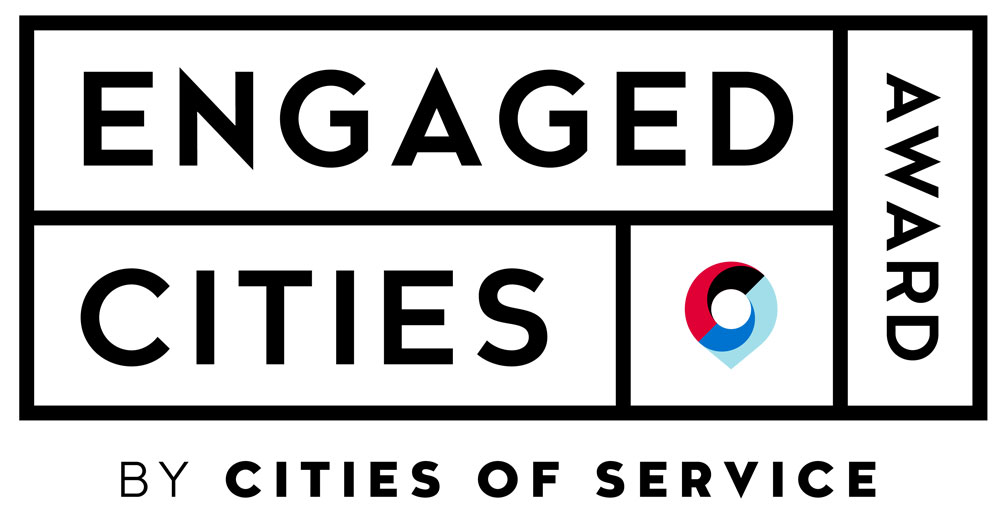
October 29, 2019; SmartCities Dive
Cities are, among other things, experimental grounds for civil society. Through focused and innovative strategies, cities can help foster the conditions for civic engagement to flourish. In an age marked by steadily decreasing confidence in public entities, some cities are overdelivering on their responsibility to cater services and address needs based on public input. These stand in stark contrast to the public’s eroding faith that democratic institutions can actually benefit the public.
However, when cities fully step into this unique role as a civic engagement broker, their citizens interact in new and exciting ways, solidifying the very essence of shared democratic ownership that underscores the foundational principles of America.
Though cities tend to be drivers of civic engagement, many nonprofits also have distinct roles to play in bolstering civic participation across the country. As NPQ noted this June, Cities of Service is one such nonprofit, with a mission focused on helping city leaders engage their citizens to build stronger communities. Through a variety of programs offered to cities throughout the globe, Cities of Service successfully raises the profile of these civic participation efforts throughout the world, while at the same time providing practical tools, case studies, and resources to assist cities in better embodying their democratic identities.
This week, Cities of Service revealed three award winners in the Engaged Cities Award, the second of an annual competition geared toward honoring cities that make a distinct difference in engaging their citizens. These three winners were selected from more than 100 applicant cities from throughout the world, and each city receives a cash award of $75,000.
While the financial contributions and accolades are important, the civic participation strategies of these award winners are vital for advancing a broad-scale rejuvenation of civic participation. These strategies can also assist nonprofits in informing their own engagement efforts.
Sign up for our free newsletters
Subscribe to NPQ's newsletters to have our top stories delivered directly to your inbox.
By signing up, you agree to our privacy policy and terms of use, and to receive messages from NPQ and our partners.
The winners represent three drastically different cities, each with its own history and its own approach to civic engagement: Flint, Michigan; Plymouth, England; and San Francisco, California.
For cities like Flint, which struggle with large numbers of abandoned and blighted properties, connecting technology with civic engagement was a pathway to receiving this award. As NPQ noted earlier this year, Flint, in partnership with Genesee County Land Bank and Imagine Flint, developed the Flint Property Portal to collect data on blighted properties with the goal of improving neighborhoods. This strategy of addressing blight intersects with efforts throughout the city, such as the University Avenue Corridor Coalition’s economic development strategy, which NPQ reported on last year. UACC uses asset-based community development (ABCD) as a central tenet to its revitalization strategy and embraced a community-driven process to identify critical opportunities for development, including addressing blight.
While Flint uses technology to eradicate blight, Plymouth, England uses crowdsourcing to allocate public funding to community groups to improve their neighborhoods. As Cities of Service notes on its website, the city of Plymouth began collecting fees from companies that were developing new buildings and set these funds aside in part to support community-led projects. However, the city came to realize that the administration of these funds was tedious and selecting projects was difficult and time-consuming for city staff. While the city had funding to allocate, the application process discouraged groups from applying.
Hence, in partnership with Crowdfunder, the city developed Crowdfund Plymouth, an online portal aimed at matching people with ideas to improve their community with the funding to implement these ideas. To date, this effort has allocated more than $500,000 to more than 80 community-led projects. The idea of using crowdfunding is so appealing as a neighborhood improvement strategy that Cities of Services developed a Crowdfunding Blueprint for cities to use to develop and implement this civic intervention.
While the scale of efforts in Flint and Plymouth are impressive, navigating civic engagement in larger metropolitan areas like San Francisco, the third Engaged Cities award winner, takes on a different dimension. Recognizing that the solution to complex problems potentially could rest within the talented residents living in the San Francisco area, the city’s Office of Civic Innovation developed a volunteer program called Civic Bridge.
Through Civic Bridge, citizens with private sector experience offer pro-bono assistance to develop solutions to public sector challenges. The impact of this effort is worth noting. Civic Bridge volunteers have worked with 25 city departments on 49 projects, engaging about 450 city staff and citizen volunteers. The city estimates that companies have provided $3.9 million in pro-bono work through the program.
The three Engaged Cities award winners showcase how innovation crosses into public engagement strategies. By using available technological resource and human capital, cities can leverage additional resources and ultimately better serve their citizens. These lessons not only apply to the more than 270 cities that are part of Cities of Service, but also applies to nonprofits exploring ways to partner and engage their own constituencies.—Derrick Rhayn












